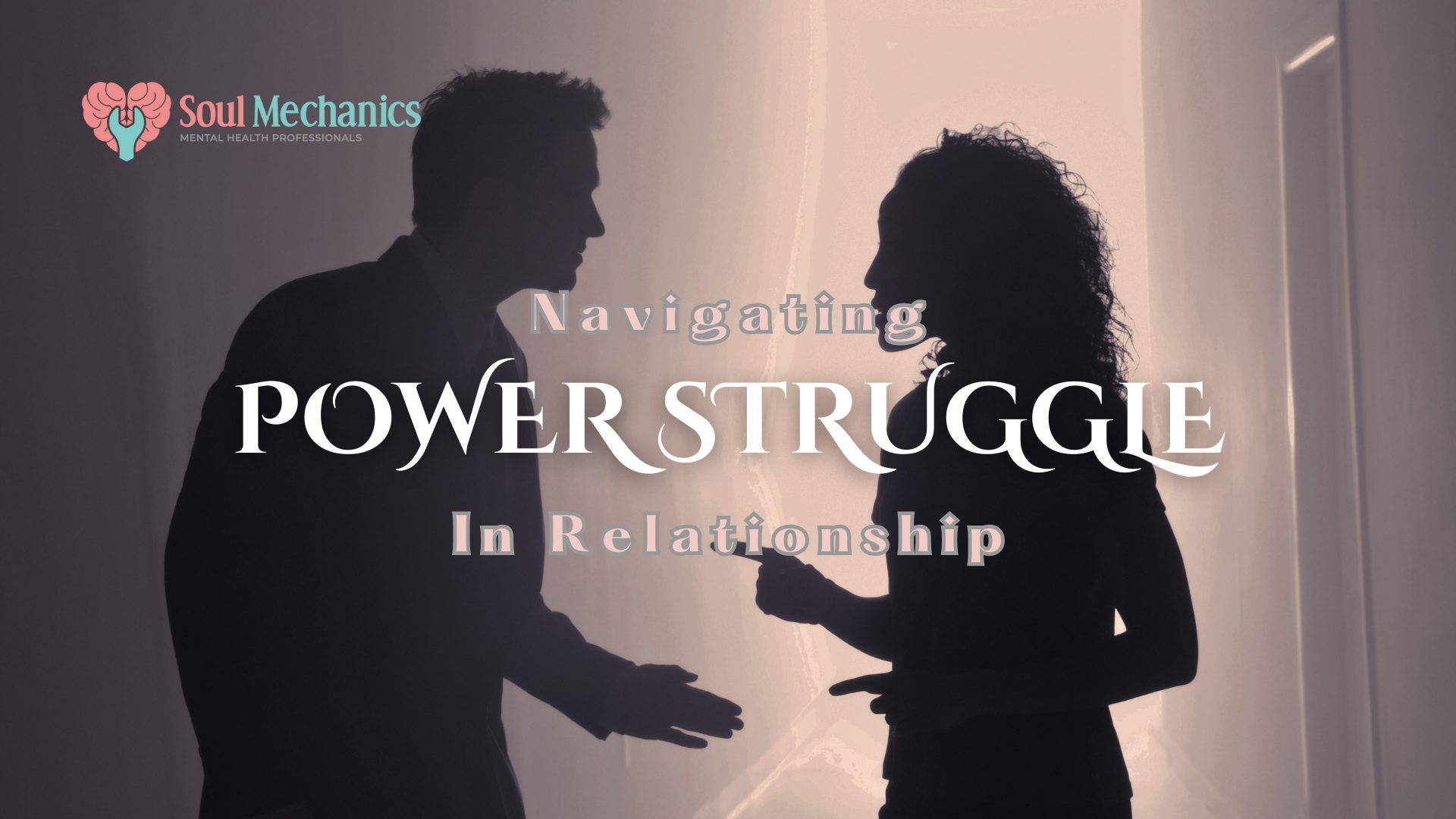Navigating Power Struggles in Relationships
Navigating Power Struggles in Relationships

Written By: Kelly Chan Jia Li, Clinical Psychologist (MAHPC(CP)00353)
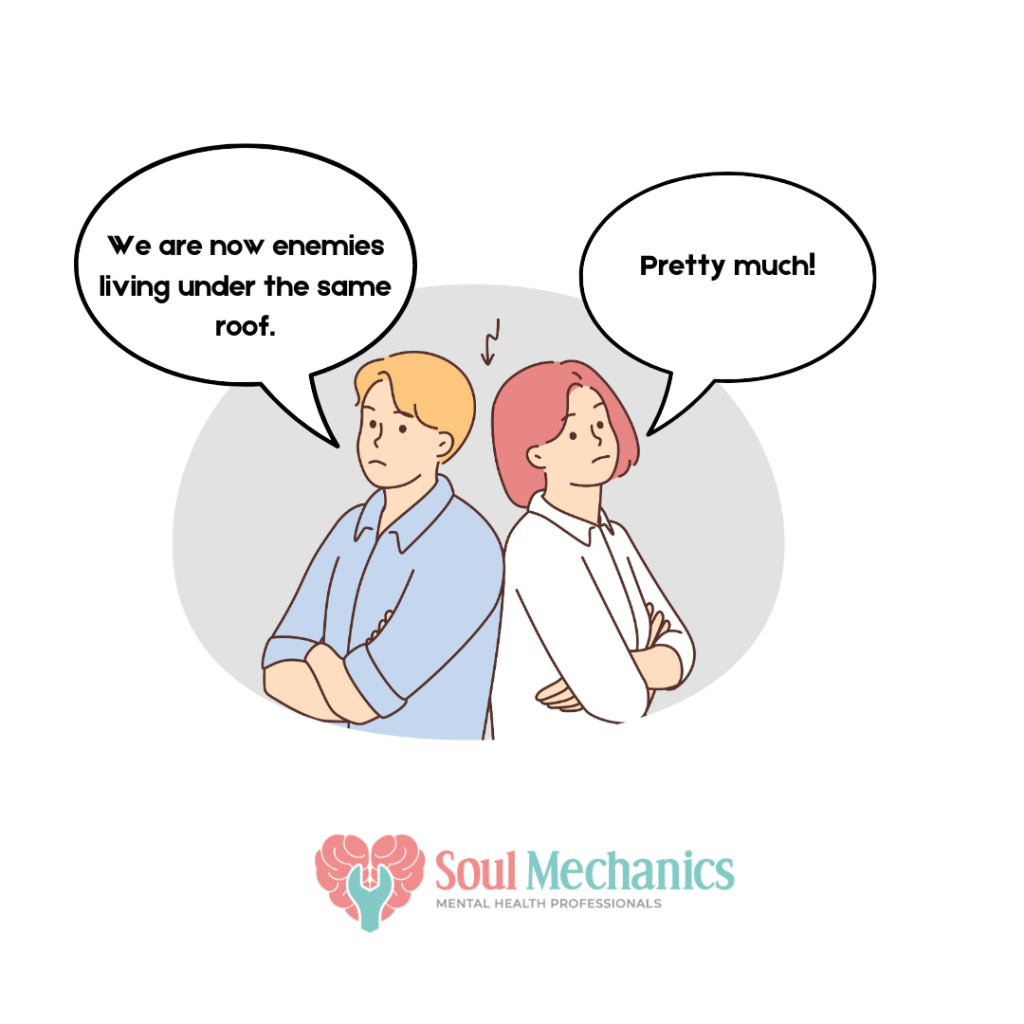
A relationship is often described as a delicate dance between two loved individuals. However, this dance may sometimes turn into a tug-of-war, where both partners seek control. These moments are known as power struggles when partners try to assert dominance, influence, or control in the relationship. Persistent power struggles can cause tension, resentment, and distrust if left unresolved. This article will dive deep into understanding power struggles and how to navigate them effectively in relationships.
What Are Power Struggles in Relationships?
Let’s imagine John and Jane Doe, a married couple. Jane wants to spend the weekend outside, but John prefers to stay home and relax. Instead of compromising, they argue for hours, each insisting on their preference. Neither is willing to budge, leading to frustration and resentment.

A power struggle occurs when partners compete for the “upper hand” in decision-making, opinions, or behaviour. It is less about collaboration but more about winning arguments in the relationship. This is not limited to significant decisions such as finances or parenting. Power struggles can also crop up in everyday situations, such as deciding what to eat for dinner or whose turn to do the dishes.
What Are the Signs of Power Struggles in Relationships?
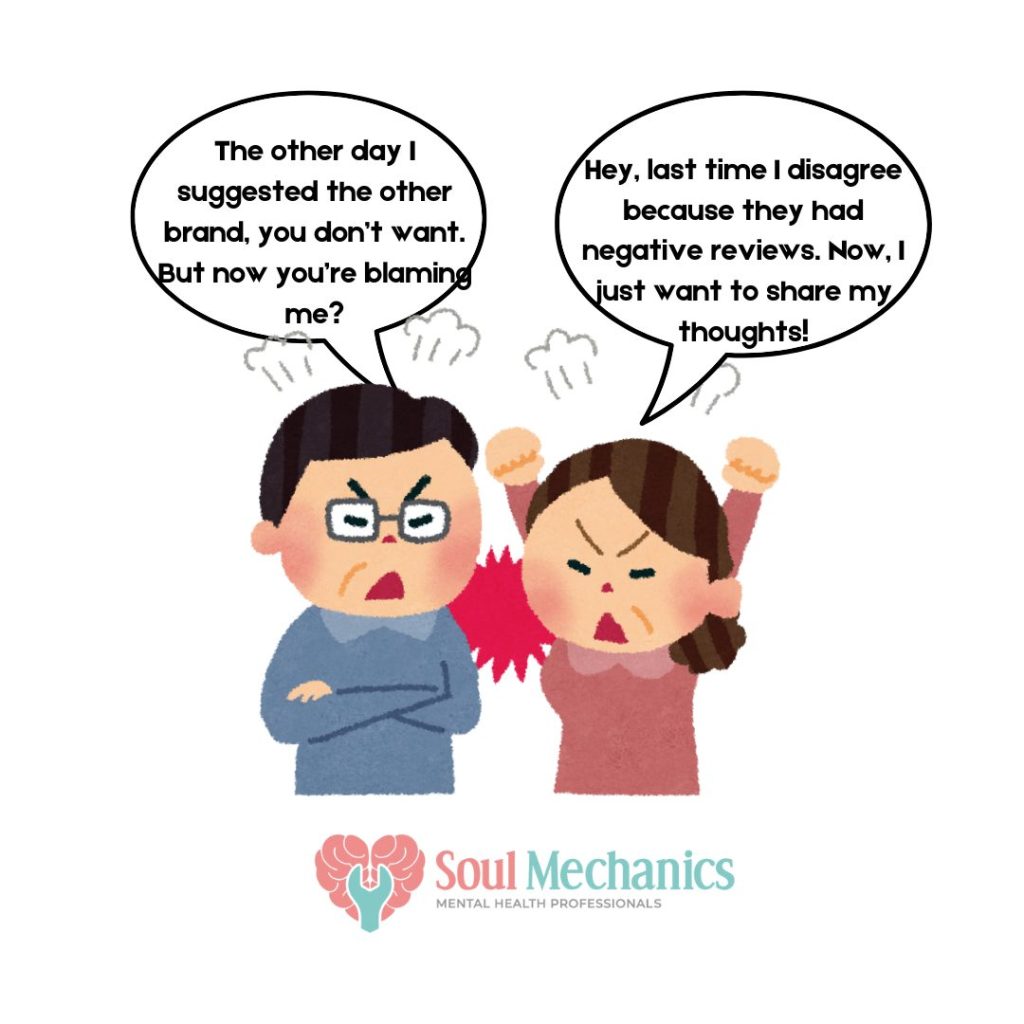
Constant Arguments
When every disagreement turns into big arguments or the same issues resurface, this can be a sign that deeper problems need attention. Healthy disagreements focus on resolving issues, but in power struggles, the goal becomes “winning” rather than understanding.
The Blame Game
In power struggle relationships, partners may avoid taking responsibility and instead shift the blame onto each other. Blame has become a way to deflect accountability. This creates a cycle of defensiveness and resentment. Phrases such as “This is all your fault” or “You are the reason we are in this mess” will be commonly used in the relationship.
Tit-for-Tat Behaviour
This behaviour involves retaliating when one partner feels wronged, often by trying to “even the score”. It is a way to assert control and subtly punish the other partner. One partner will deliberately ignore the other’s partner’s preferences or needs as payback. For example, John Doe would “forget” to pick up Jane after work because Jane forgot to call him during her lunch break.
Emotional Withholding
In power struggle relationships, one or both partners might withhold affection, attention, or communication as a way to gain control or punish the other. This creates emotional distance and fosters resentment. This includes silent treatment after an argument and refusal to show physical affection or avoid meaningful conversations as a way to assert control.
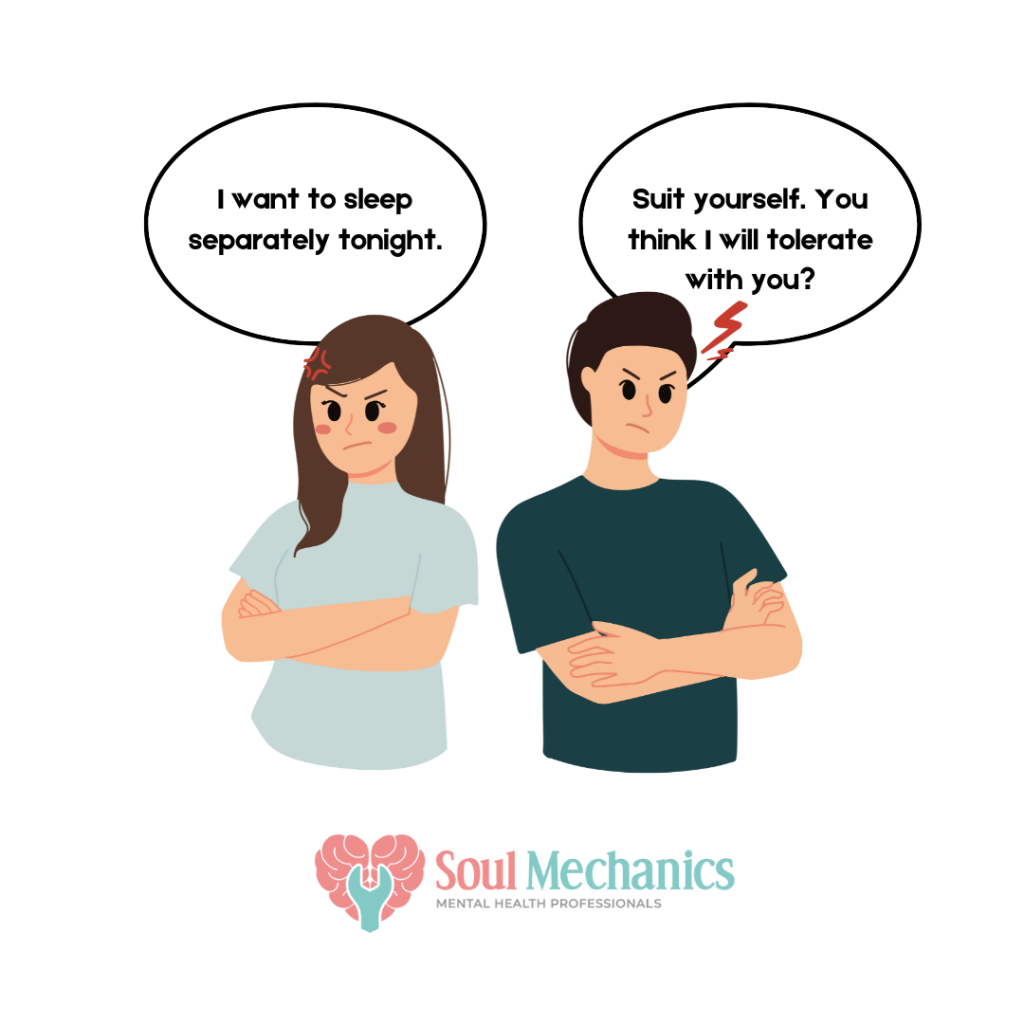
A Partner Dominating Decisions
If one partner always insists on having the final say, this can create an imbalance of power. For example, one partner will decide where to go, what to do, or how to do it without consulting the other. The dominant partner often justifies their control with phrases like “I know best.” This can make the other partner feel disrespected or invalidated as their opinions are usually dismissed or ignored.
Why Do Power Struggles Happen?
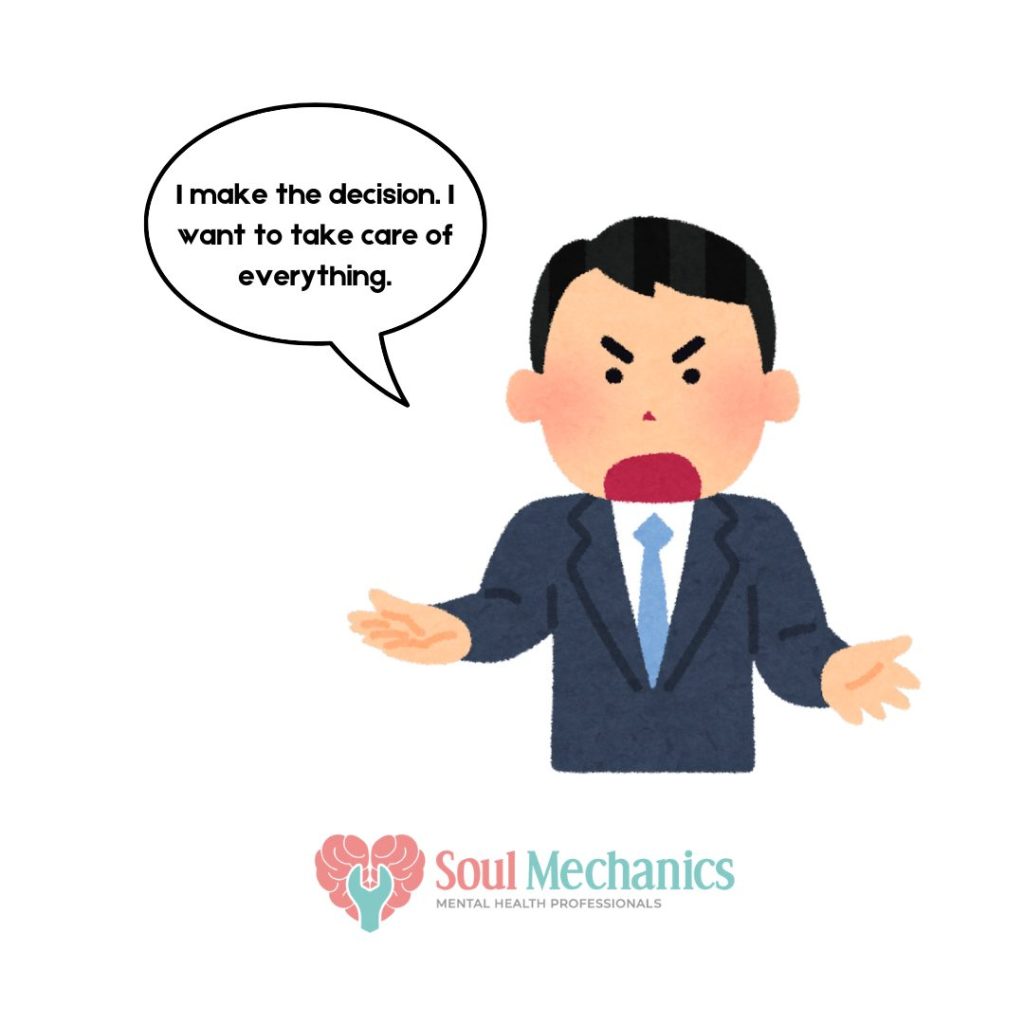
Fear of Losing Independence
Some partners may fear that compromising in a relationship means sacrificing their autonomy. This fear can lead them to resist their partner’s suggestions, even when collaboration might benefit both parties.
Unmet Emotional Needs
When one partner feels unheard, unappreciated, or undervalued, they may try to assert control to compensate for those feelings. Suppose their emotional needs, such as validation, respect, or affection, are unmet. The partner may resort to power dynamics to feel seen or heard in that case. They might push harder during arguments to feel like their opinion matters.
Fear of Vulnerability
Opening up can feel risky. Some individuals equate vulnerability with weakness. They fear compromising or yielding control might make them appear dependent or submissive. Hence, they sometimes will use control as a defence mechanism to avoid feeling vulnerable in the relationship.
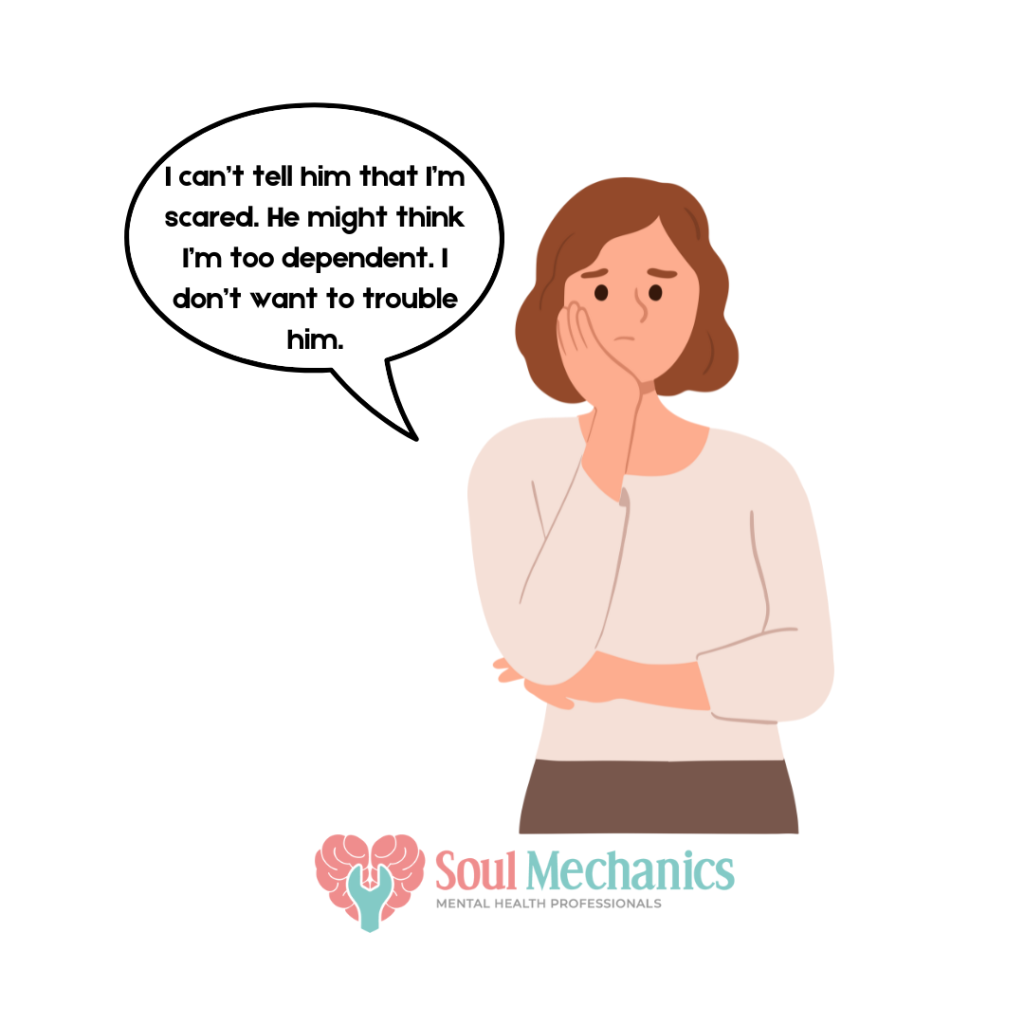
Past Experiences
Our upbringing, unresolved trauma or past relationships can influence how we approach power dynamics. Someone who grew up in a controlling household might overcompensate by asserting dominance in their relationship, even in a healthy relationship.
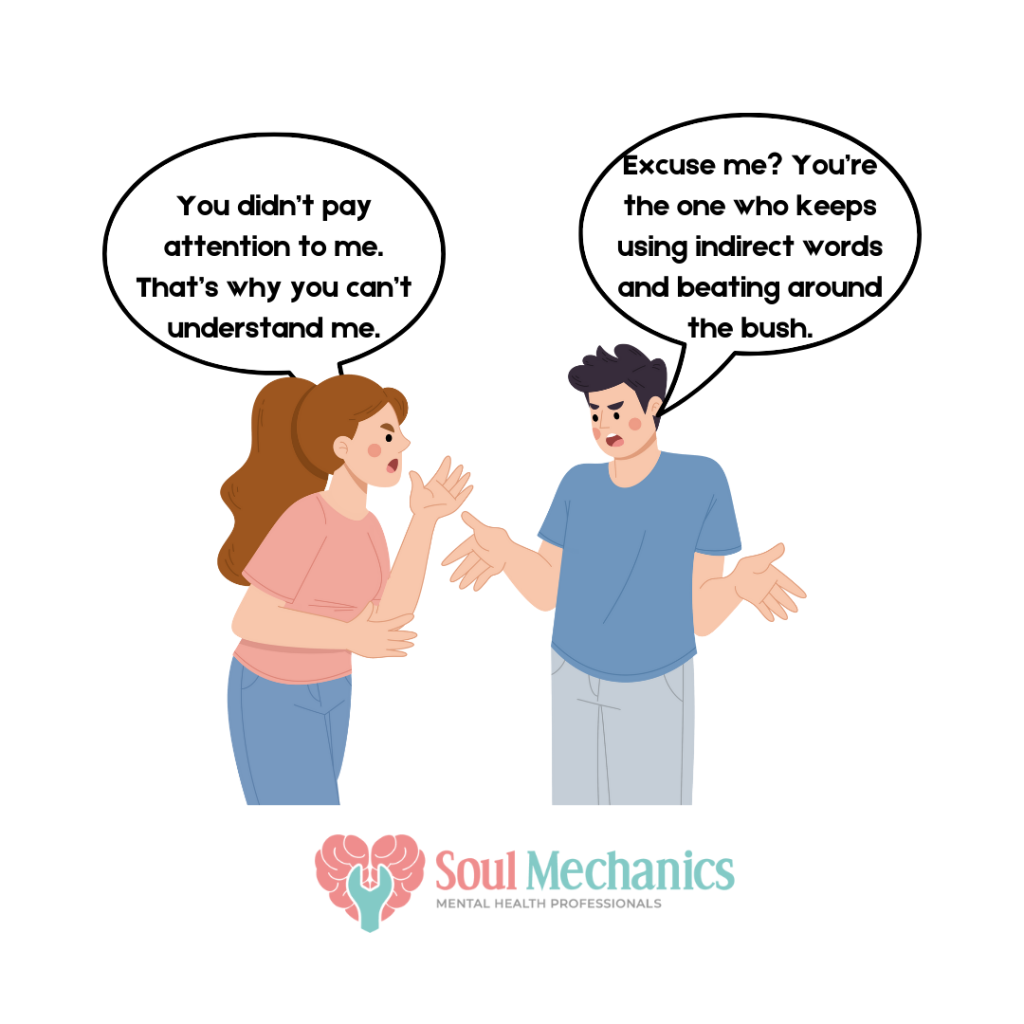
Poor Communication
Misunderstandings, communication breakdowns or assumptions about a partner’s intentions can exacerbate conflicts between partners. Instead of expressing feelings calmly, partners may resort to accusations or defensiveness. This defensive approach sparks a power struggle rather than resolving the issue.
What Are The Consequences of Power Struggles?
If left unresolved, power struggles can have a significant and lasting impact on a relationship. These effects go beyond the surface-level arguments and create deeper emotional, psychological, and relational issues.
Erosion of Trust
Trust is an essential ingredient of a healthy relationship. Power struggles involving behaviours such as dismissing your partner’s needs or invalidating their feelings can make partners lose faith in each other. Over time, these actions erode trust, making it harder for partners to rely on each other emotionally.
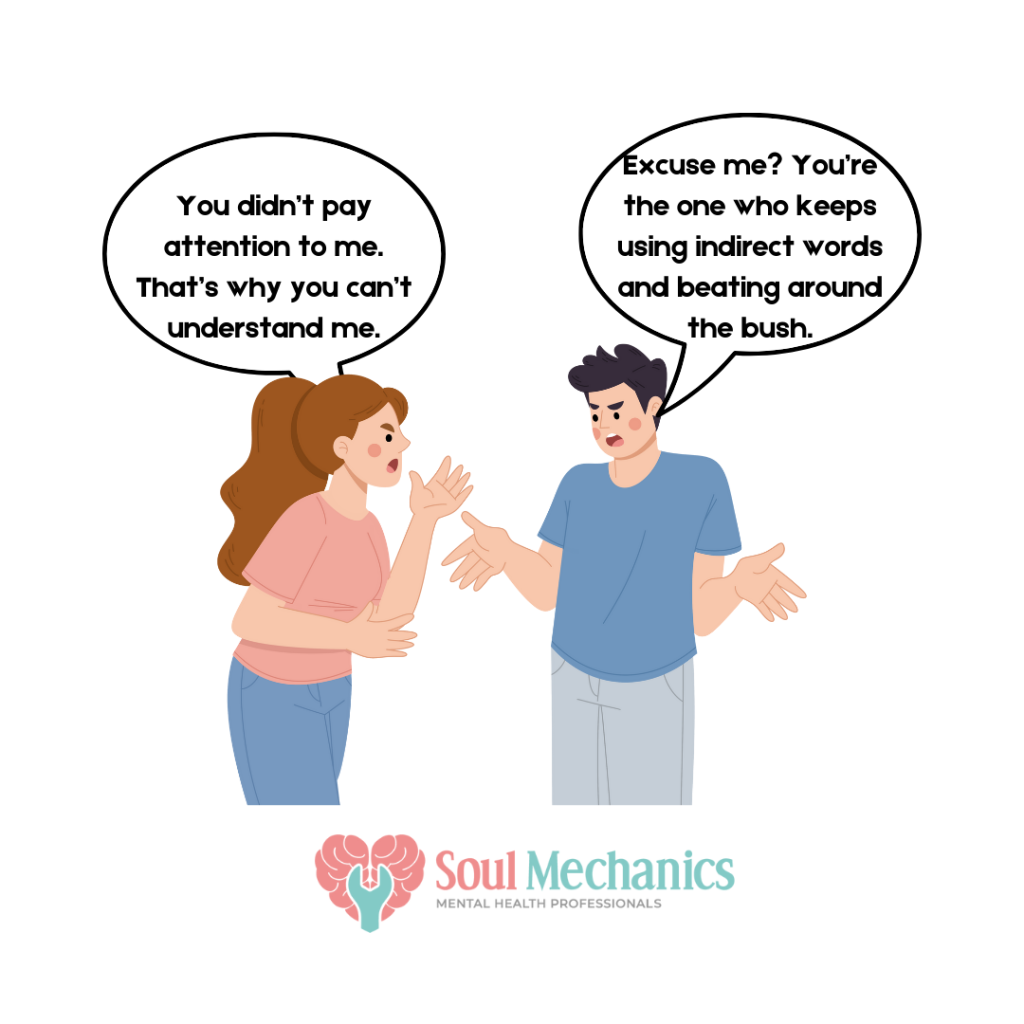
Emotional Distance
Constant power struggles can create an emotional gap between partners. Instead of feeling like a team, they may start to feel like rivals. They stop sharing their thoughts, feelings, or experiences with each other. This distance can diminish feelings of love, closeness, and intimacy. Over time, they may feel like they are “just coexisting” rather than genuinely connecting.
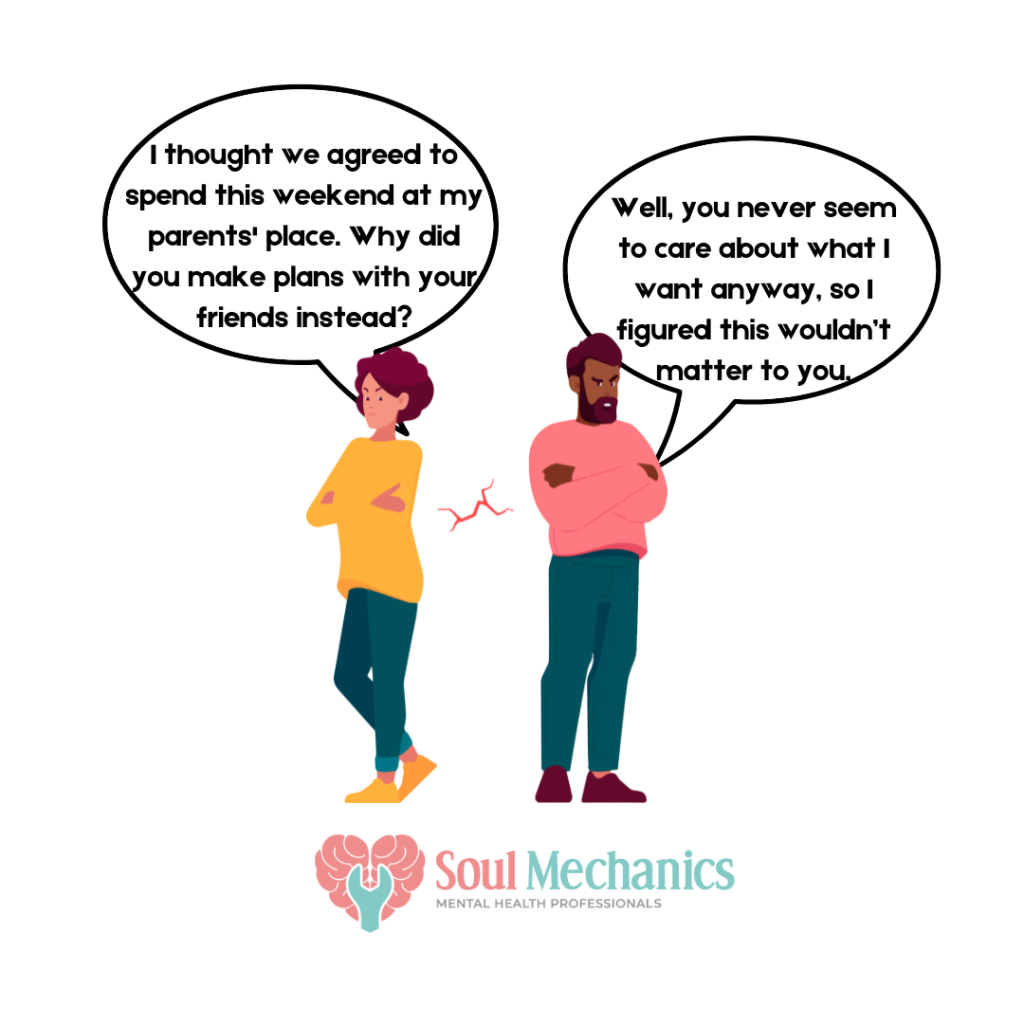
Increased Resentment
When one or both partners feel consistently unheard, invalidated, or overpowered, resentment builds. This unspoken bitterness acts as a ticking time bomb, eventually exploding during moments of conflict or manifesting as passive-aggressive behaviour.
Stagnation in Relationship Growth
Relationships need mutual respect and understanding to grow. Power struggles create constant conflict, leaving little room for mutual growth, shared goals, or new experiences. Partners may feel stuck in a cycle of repeating the same arguments. With this, there will be little effort to nurture the relationship beyond daily routines.
How to Navigate Power Struggles?
Power struggles do not have to be the end of the road. Resolving power struggles requires effort, understanding, and a willingness to change from the partners.
Practice Active Listening
Active listening involves fully focusing on your partner’s words, emotions, and perspective without interrupting or planning your response. When both partners feel genuinely heard, the need to assert dominance decreases, making collaboration easier. This creates an atmosphere of understanding and reduces conflict.

Shift the Focus from Winning to Understanding
In power struggles, the focus often shifts to proving who is right. Try to understand your partner’s perspective instead of trying to “win” an argument. Ask questions to uncover your partner’s perspective, such as, “Why is this important to you?” or “How can we find a solution that works for both of us?” Reframe conflicts as opportunities to understand each other better rather than battles to win. This helps partners move from competition to collaboration.

Compromise Where Possible
Healthy relationships thrive on give-and-take. Compromise is the foundation of resolving power struggles. It involves finding the middle ground where both partners feel their needs are considered and respected. Try to find solutions that respect both partners’ needs. This can show that both partners are invested in the relationship’s well-being, not just their individual preferences.
Communicate Effectively
Effective communication can help to overcome power struggles. It involves speaking openly and respectfully while avoiding hurtful or dismissive language. Try using “I” statements to express your feelings without assigning blame. Instead of saying, “You never listen to me,” try, “I feel ignored when my opinions are not considered.” Clear and respectful communication minimizes misunderstandings and creates a safe space for resolving conflicts.
Establish Healthy Boundaries
Boundaries help define what is acceptable in a relationship and ensure both partners feel respected. Boundaries help prevent one partner from overstepping while protecting each partner’s individuality. This can reduce misunderstandings and create a sense of safety, minimizing the need for power plays.
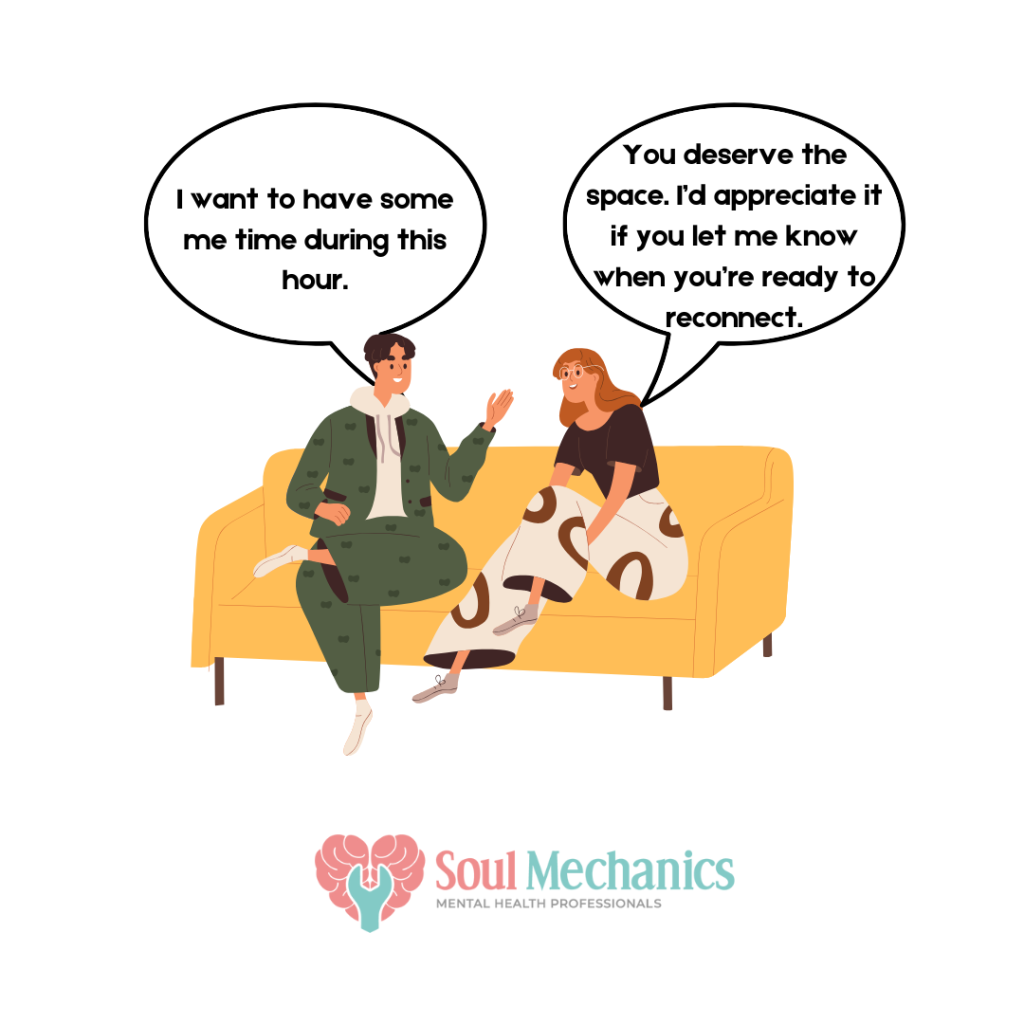
Cultivate Mutual Respect
Respect is essential for resolving power struggles. It means valuing your partner’s opinions, feelings, and autonomy as equal to your own. Avoid using dismissive language, such as “You are overreacting” or “That is a bad idea” while communicating with your partner. When both partners feel valued and respected, asserting control or superiority in a relationship is less needed.
Seek Professional Help When Needed
Sometimes, power struggles may require the guidance of a neutral third party. If power struggles persist despite your efforts, couples therapy can provide a safe space for you and your partner to navigate conflicts and build healthier patterns. Mental health professionals can offer insights and tools you might not discover on your own and help to break the unhelpful patterns.
There is No ‘You and Me’, Only ‘We’ In Relationship
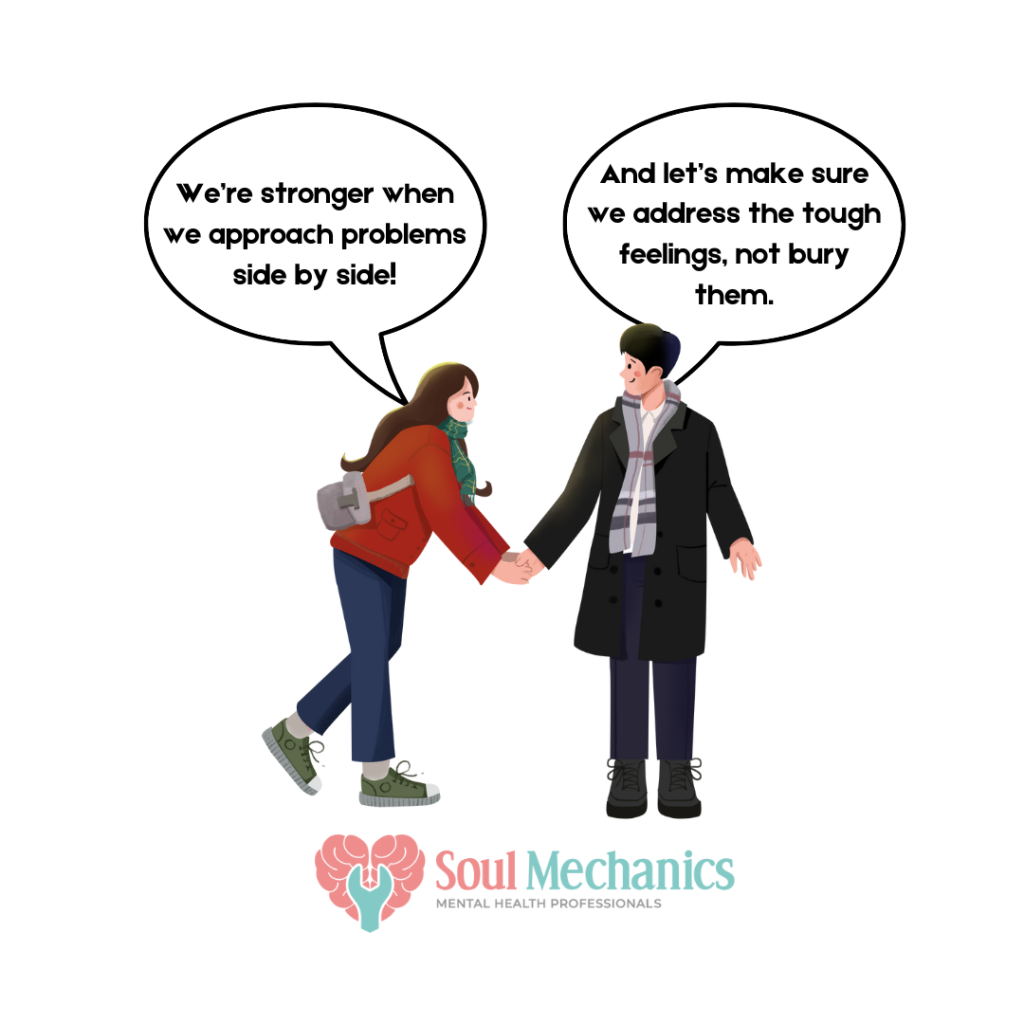
Power struggles are normal in any relationship, but they do not have to be destructive. The key to overcoming them lies in shifting from competition to collaboration. Remember, the goal is not to “win” against your partner. It is to build a partnership where both partners feel valued, respected, and supported. Let’s approach power struggles as a team. Together, you can create a partnership that feels supportive and fulfilling.
If you enjoyed reading this, why not broaden the horizon of knowledge by learning about "Breaking Free from Resentment"? You can read the blog here.
For more content related to mental health do follow us on our official Instagram.

